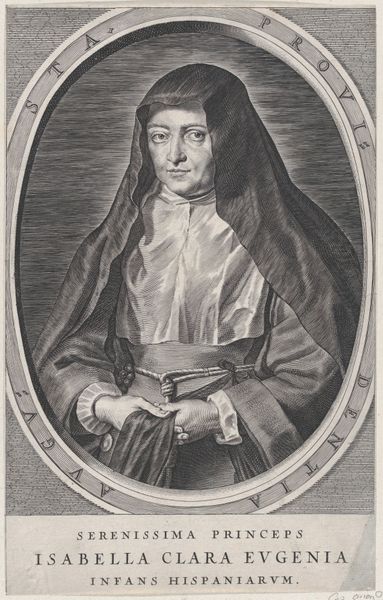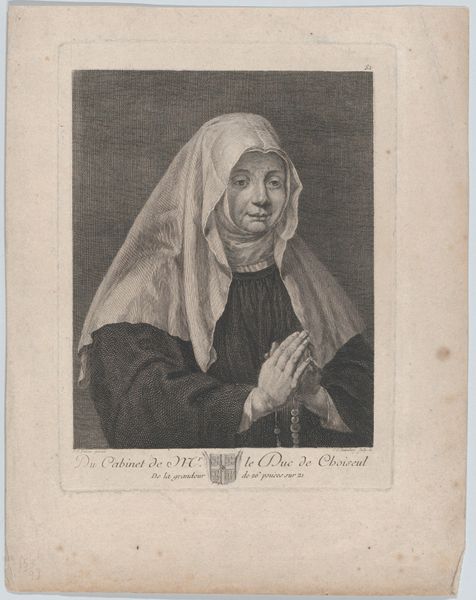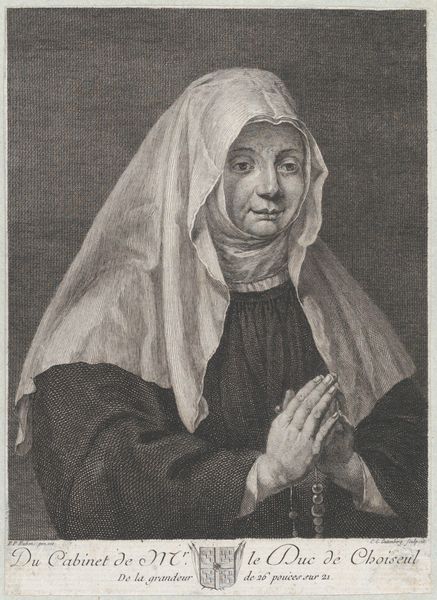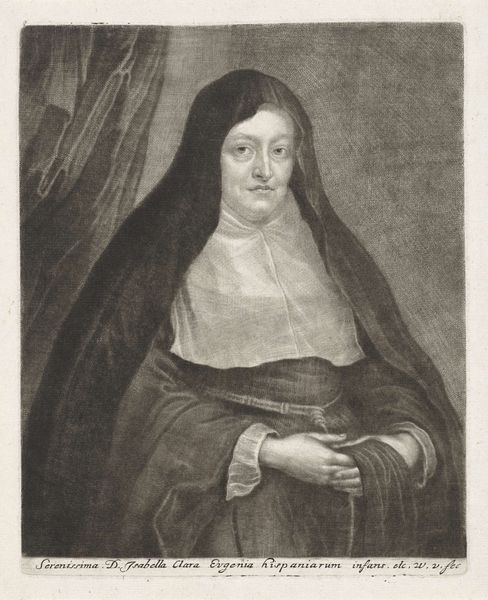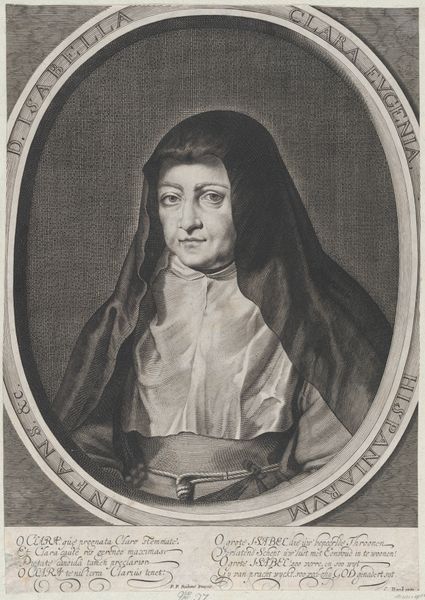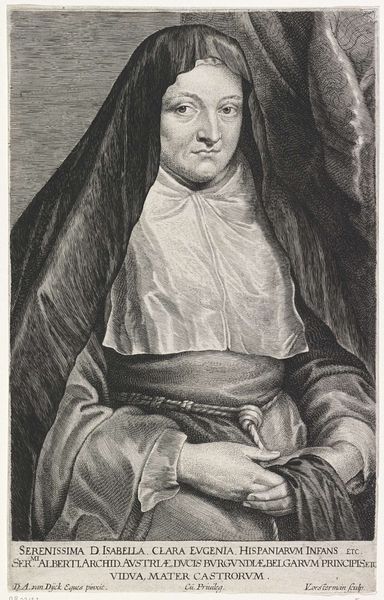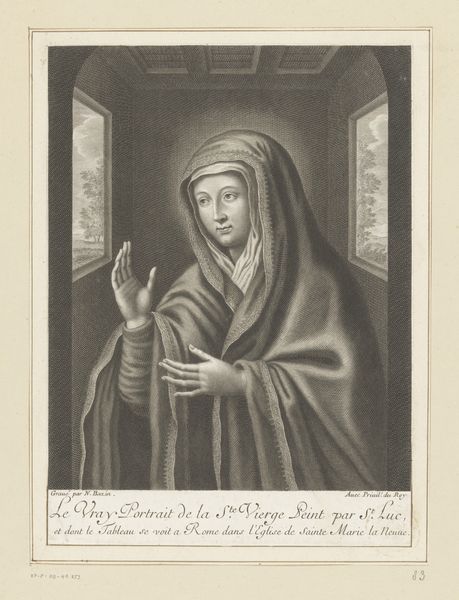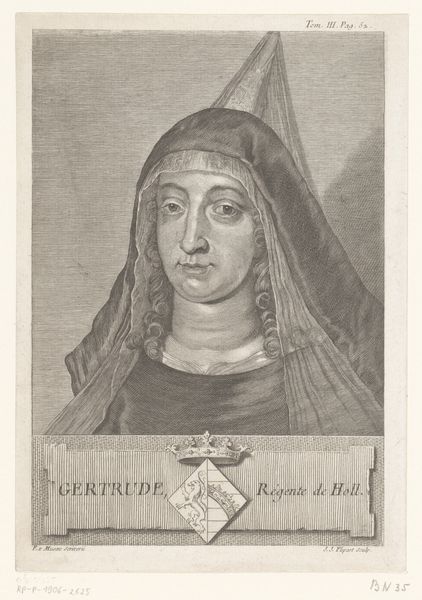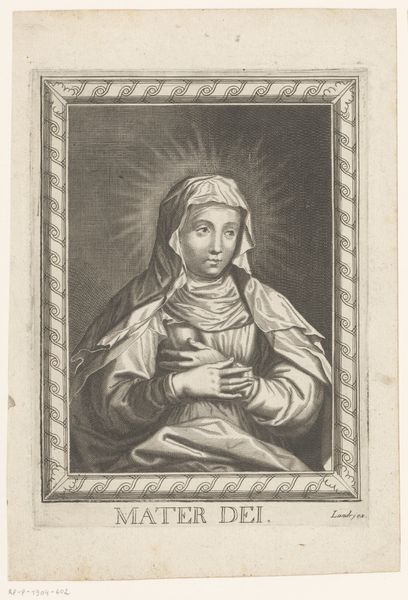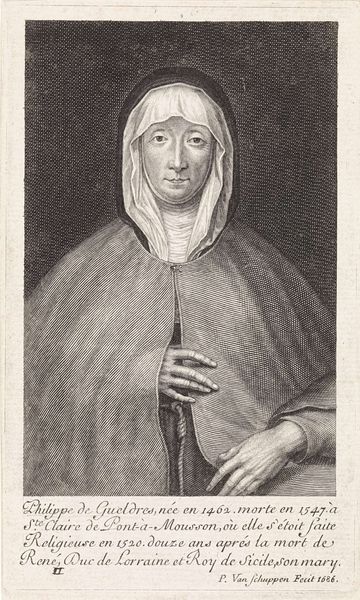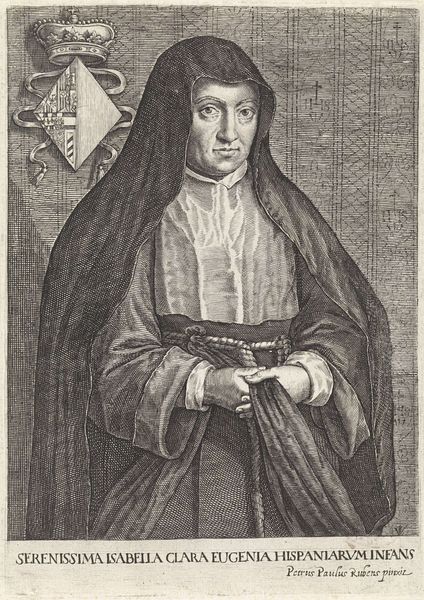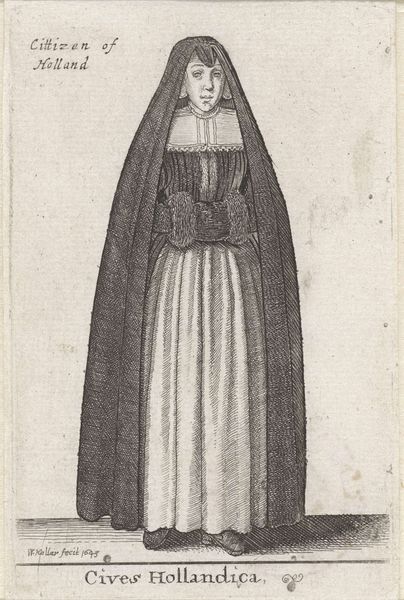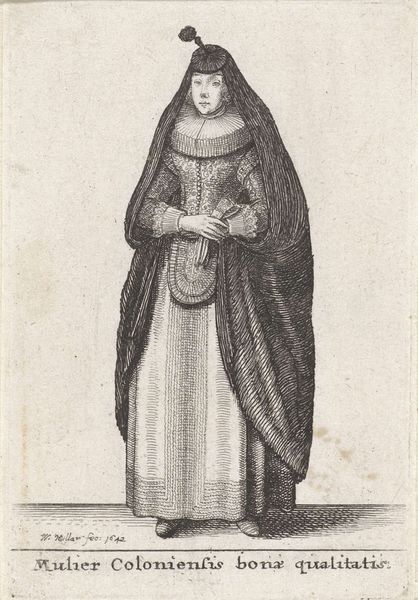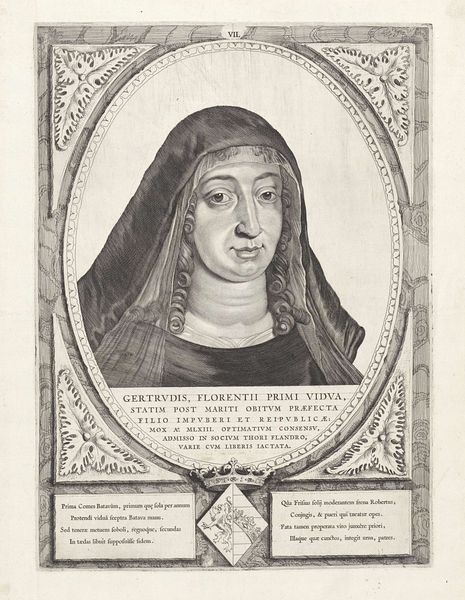
drawing, print, engraving
#
portrait
#
drawing
#
baroque
# print
#
history-painting
#
engraving
Dimensions: Sheet: 15 7/16 x 10 1/2 in. (39.2 x 26.7 cm) Plate (Sight): 12 3/16 × 9 13/16 in. (30.9 × 25 cm)
Copyright: Public Domain
Curator: Let's take a closer look at this print, created sometime between 1580 and 1639. The piece is attributed to Abraham Verhouven. Editor: She has such an intense gaze, doesn't she? The monochrome tones create an interesting contrast to the intricate backdrop and the bold heraldic device at the upper left. There is almost something melancholic about this person. Curator: Indeed. What we see here is an engraving, currently housed at the Metropolitan Museum of Art in New York, portraying Isabella Clara Eugenia. It's a classic example of Baroque portraiture. And yes, this image of Isabella certainly evokes a complex sense of identity, capturing something about the constraints placed on women of her stature. Editor: Her dress seems quite sober, particularly given that regal display right over her left shoulder. All that finery compared to what she's wearing. There's a story in that contrast, right? I feel she would rather be gardening or writing poems. Curator: Precisely. While appearing to be a simple, unassuming rendering of this historical figure, her attire and the almost restrained, though unquestionably royal, presence are suggestive of specific aspects of identity politics. She’s a ruler and woman in what was quite palpably a man's world. This portrayal becomes something much more compelling when seen through the lenses of feminism and history. Editor: Art's fantastic like that—isn't it? To get lost in those silent dialogues of cloth and crown, the way artists like Verhouven spoke volumes without shouting. Isabella gazes on with quiet authority, daring us to unravel her tale, bit by bit. And to be fair, you know that I will keep at this until the silence speaks in verse. Curator: Absolutely, and that’s the enduring power and purpose of art – to foster ongoing dialogues about ourselves and the times in which we live.
Comments
No comments
Be the first to comment and join the conversation on the ultimate creative platform.
